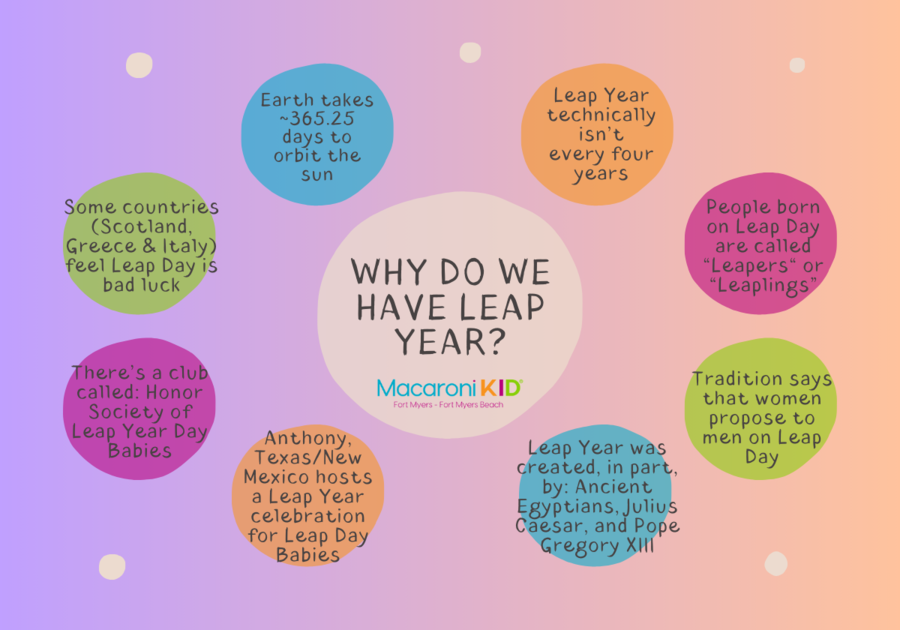2024 is a special year because it has an extra day in February. February 29th is known as Leap Day, but have you ever wondered why we have it?
We know a "year" to be equal to 365 days. However, scientifically speaking, Earth takes closer to 365.25 days to travel around the sun one time – this is called a "solar year."
That extra 0.25 (1/4) day is the reason we have leap year. When added together, four 0.25 days equal one full day. To account for that one full day, Leap Day (February 29) is added to the year, every four or so years, making those years Leap Years.
If we didn't have Leap Day, what would happen?
Over time those 0.25 days would add up, which would throw off our seasons. The calendar would be off by 24 days every 100 years.
For example, if we didn't have Leap Years, the summer's 4th of July would actually fall during winter season. Can you imagine how this would change harvesting/farming seasons? How about celebrating New Years Day in the springtime?
How do we know when it is a Leap Year?
Generally speaking, Leap Years occur every four years.
In order to qualify as a Leap Year, the year number must be divisible by four, with the exception of end-of-century years, which have to be divisible by 400.
For example, the year 1900 was not a Leap Year because it was not divisible by 400, but the year 2000 was a Leap Year because it was divisible by 400. The years 2100, 2200, and 2300 will not be Leap Years because they are not divisible by 400, but 2400 will be.
Which upcoming years will be Leap Years?
2024, 2028, 2032, 2036, 2040, 2044, 2048, 2052, 2056, etc.
Leap Day every four years keeps our calendar in sync with the Earth's orbit, preventing a drift of 24 days every century and ensuring our seasons stay on track. This simple adjustment maintains the accuracy of our timekeeping and avoids major disruptions to farming and seasonal celebrations.



